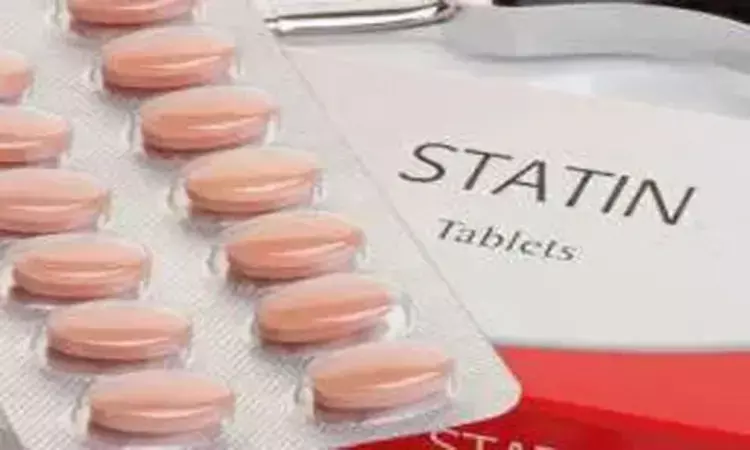- Home
- Medical news & Guidelines
- Anesthesiology
- Cardiology and CTVS
- Critical Care
- Dentistry
- Dermatology
- Diabetes and Endocrinology
- ENT
- Gastroenterology
- Medicine
- Nephrology
- Neurology
- Obstretics-Gynaecology
- Oncology
- Ophthalmology
- Orthopaedics
- Pediatrics-Neonatology
- Psychiatry
- Pulmonology
- Radiology
- Surgery
- Urology
- Laboratory Medicine
- Diet
- Nursing
- Paramedical
- Physiotherapy
- Health news
- Fact Check
- Bone Health Fact Check
- Brain Health Fact Check
- Cancer Related Fact Check
- Child Care Fact Check
- Dental and oral health fact check
- Diabetes and metabolic health fact check
- Diet and Nutrition Fact Check
- Eye and ENT Care Fact Check
- Fitness fact check
- Gut health fact check
- Heart health fact check
- Kidney health fact check
- Medical education fact check
- Men's health fact check
- Respiratory fact check
- Skin and hair care fact check
- Vaccine and Immunization fact check
- Women's health fact check
- AYUSH
- State News
- Andaman and Nicobar Islands
- Andhra Pradesh
- Arunachal Pradesh
- Assam
- Bihar
- Chandigarh
- Chattisgarh
- Dadra and Nagar Haveli
- Daman and Diu
- Delhi
- Goa
- Gujarat
- Haryana
- Himachal Pradesh
- Jammu & Kashmir
- Jharkhand
- Karnataka
- Kerala
- Ladakh
- Lakshadweep
- Madhya Pradesh
- Maharashtra
- Manipur
- Meghalaya
- Mizoram
- Nagaland
- Odisha
- Puducherry
- Punjab
- Rajasthan
- Sikkim
- Tamil Nadu
- Telangana
- Tripura
- Uttar Pradesh
- Uttrakhand
- West Bengal
- Medical Education
- Industry
Add on Aspirin to statins for primary prevention of ASCVD does more harm than good, Reveals Meta-analysis

USA: The addition of aspirin to statin therapy may lead to more harm than good in the case of patients without established atherosclerotic cardiovascular disease, a recent meta-analysis of 16 trials on the subject has revealed.
A meta-analysis of 16 trials comprising 171,215 individuals without established ASCVD (atherosclerotic cardiovascular disease) showed that while aspirin added to statin therapy did reduce the risk of myocardial infarction (MI), the same came at the expense of higher significant bleeding rates. Further, the Aspirin add-on was not linked with total or cardiovascular survival benefits.
For patients without ASCVD who are already on statin therapy, adding aspirin is unlikely to achieve additional meaningful cardiovascular benefits but would enhance bleeding risk.
"In people with ASCVD, concomitant statin may significantly reduce absolute risk reduction for MI linked with aspirin without impacting bleeding risk," the researchers wrote in their study published in JACC: Advances. "For every level of ASCVD risk, the anticipated absolute bleeding risk with aspirin exceeds absolute MI benefits."
The research highlights that risk-benefit equilibrium may be more toward harm for primary prevention. The findings may have implications for aspirin use in those already on statins for primary prevention of ASCVD.
Aspirin's role in primary ASCVD prevention remains controversial. In 2019, the AHA (American Heart Association)/ACC (American College of Cardiology) recommended considering prophylactic low-dose aspirin only among asymptomatic people at high risk of ASCVD events, low risk of bleeding and age <70 years (IIb). In 2021, the ESC's (European Society of Cardiology) primary prevention guidelines endorsed a similar recommendation.
Given that the effects of aspirin in adults without ASCVD, stratified by statin use across different risks for ASCVD, remains uncertain, Safi U. Khan, Houston Methodist DeBakey Heart & Vascular Center, Houston, Texas, USA, and colleagues aimed to examine the aspirin's effects in adults without ASCVD, stratified by statin use across different ASCVD risks.
For this purpose, the researchers searched through March 2022, and randomized controlled trials (RCTs) of aspirin without an ASCVD and follow-up of ≥1 year were selected. Random-effect models and estimated relative and absolute risks were used for major bleeding, cardiovascular outcomes, and mortality over five years. Absolute risk differences were calculated assuming constant relative risks (RRs) across ASCVD risks and statin use. Baseline risks were estimated using the ASCEND (A Study of Cardiovascular Events in Diabetes) trial and the Cholesterol Treatment Trialists Collaboration.
The meta-analysis revealed the following findings:
- In 16 trials comprising 171,215 individuals, median age, 64 years, aspirin vs control reduced MI [RR: 0.85] but increased major bleeding [RR: 1.48].
- Aspirin did not reduce mortality in patients without ASCVD. Statin versus no statin was linked with lower bleeding and MI risk; the MI and bleeding risk were proportional to ASCVD risk.
- For every 10,000 adults, aspirin reduced myocardial infarction (very low risk: 3 events as monotherapy or one event with a statin; very high risk: 49 events as monotherapy or 37 events with a statin) and increased major bleeding (very low risk: 21 events as monotherapy or 20 events with a statin; very high risk: 98 events as monotherapy or 94 events with a statin) proportional to baseline ASCVD risk.
To conclude, concomitant statin significantly reduced the absolute risk reduction for MI linked with aspirin without impacting bleeding risk. The absolute risk of major bleeding was above absolute MI benefits for every level of ASCVD risk.
These findings may have implications for aspirin use in those already on statin therapy for primary prevention of ASCVD.
Reference:
Khan, S. U., Lone, A. N., Kleiman, N. S., Arshad, A., Jain, V., Al Rifai, M., Arshad, H. B., Dani, S. S., Khera, A., Morris, P. B., Bittner, V., Nasir, K., & Virani, S. S. (2023). Aspirin With or Without Statin in Individuals Without Atherosclerotic Cardiovascular Disease Across Risk Categories. JACC: Advances, 100197. https://doi.org/10.1016/j.jacadv.2022.100197
Dr Kamal Kant Kohli-MBBS, DTCD- a chest specialist with more than 30 years of practice and a flair for writing clinical articles, Dr Kamal Kant Kohli joined Medical Dialogues as a Chief Editor of Medical News. Besides writing articles, as an editor, he proofreads and verifies all the medical content published on Medical Dialogues including those coming from journals, studies,medical conferences,guidelines etc. Email: drkohli@medicaldialogues.in. Contact no. 011-43720751


